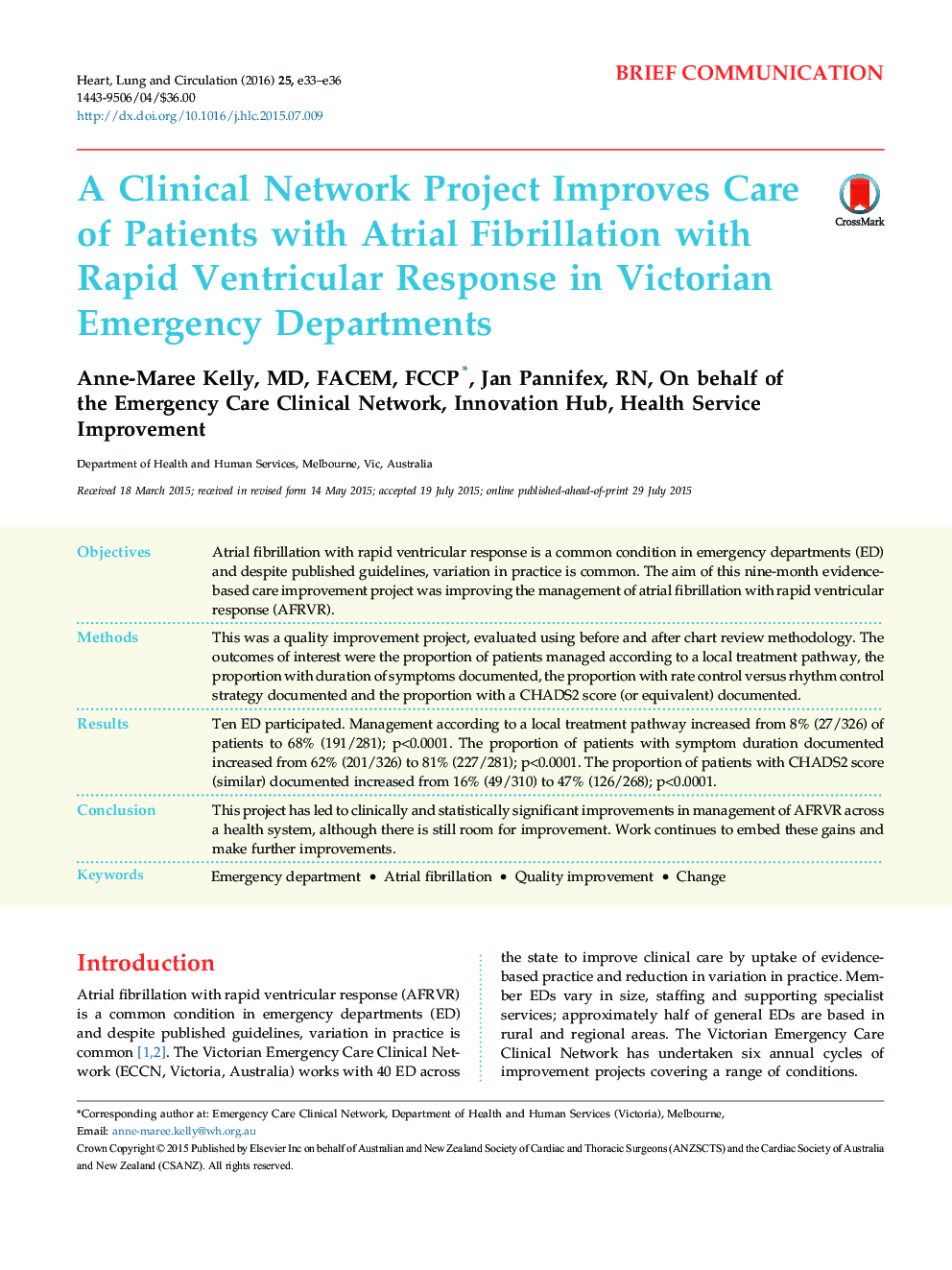| Article ID | Journal | Published Year | Pages | File Type |
|---|---|---|---|---|
| 2916844 | Heart, Lung and Circulation | 2016 | 4 Pages |
ObjectivesAtrial fibrillation with rapid ventricular response is a common condition in emergency departments (ED) and despite published guidelines, variation in practice is common. The aim of this nine-month evidence-based care improvement project was improving the management of atrial fibrillation with rapid ventricular response (AFRVR).MethodsThis was a quality improvement project, evaluated using before and after chart review methodology. The outcomes of interest were the proportion of patients managed according to a local treatment pathway, the proportion with duration of symptoms documented, the proportion with rate control versus rhythm control strategy documented and the proportion with a CHADS2 score (or equivalent) documented.ResultsTen ED participated. Management according to a local treatment pathway increased from 8% (27/326) of patients to 68% (191/281); p<0.0001. The proportion of patients with symptom duration documented increased from 62% (201/326) to 81% (227/281); p<0.0001. The proportion of patients with CHADS2 score (similar) documented increased from 16% (49/310) to 47% (126/268); p<0.0001.ConclusionThis project has led to clinically and statistically significant improvements in management of AFRVR across a health system, although there is still room for improvement. Work continues to embed these gains and make further improvements.
